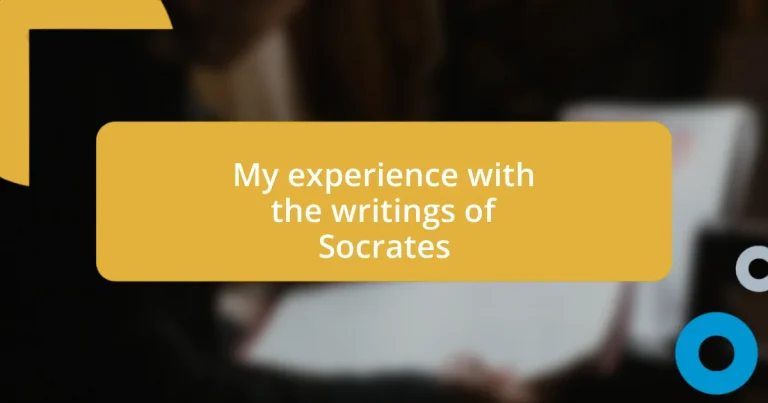Key takeaways:
- Socratic philosophy encourages critical thinking and self-reflection, emphasizing that the unexamined life is not worth living.
- Key themes in Socratic writings include ethics, the importance of recognizing ignorance, the dialectical method, and the practice of self-examination.
- Practical applications of Socratic ideas in conversations and decision-making enhance understanding, clarity, and empathy in personal and professional interactions.
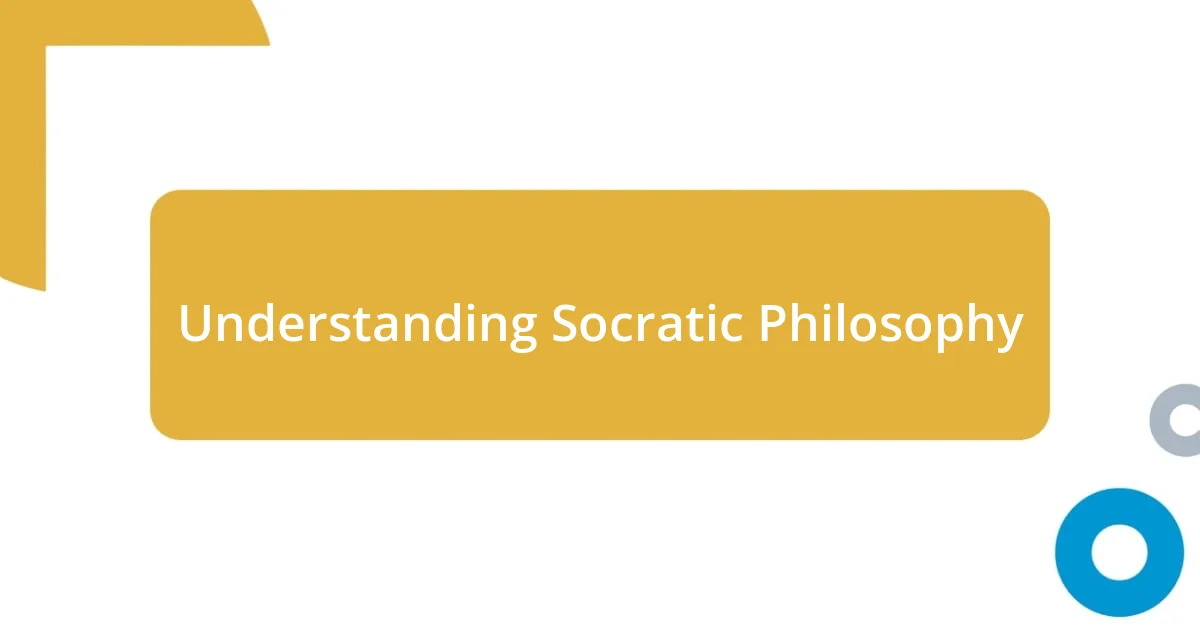
Understanding Socratic Philosophy
Socratic philosophy, to me, is like peeling an onion—layer by layer, you uncover deeper truths. I remember the first time I read about Socrates questioning the very foundations of knowledge. I couldn’t help but marvel at how he turned everyday conversations into profound explorations of virtue and ethics.
As I delved into his dialectical method, known as the Socratic method, I realized it challenges us to think critically and question our assumptions. Have you ever found yourself in a discussion where your beliefs were put to the test? I vividly recall one lively debate with friends where I had to defend my views, and it was eye-opening to see how much I had taken for granted.
What resonates with me most is Socrates’ belief that the unexamined life is not worth living. It ignited a passion for self-reflection within me, prompting many late-night ponderings about my own values and ethics. This ongoing quest for understanding feels as relevant now as it did in ancient Athens, encouraging me to embrace discomfort in the pursuit of wisdom.
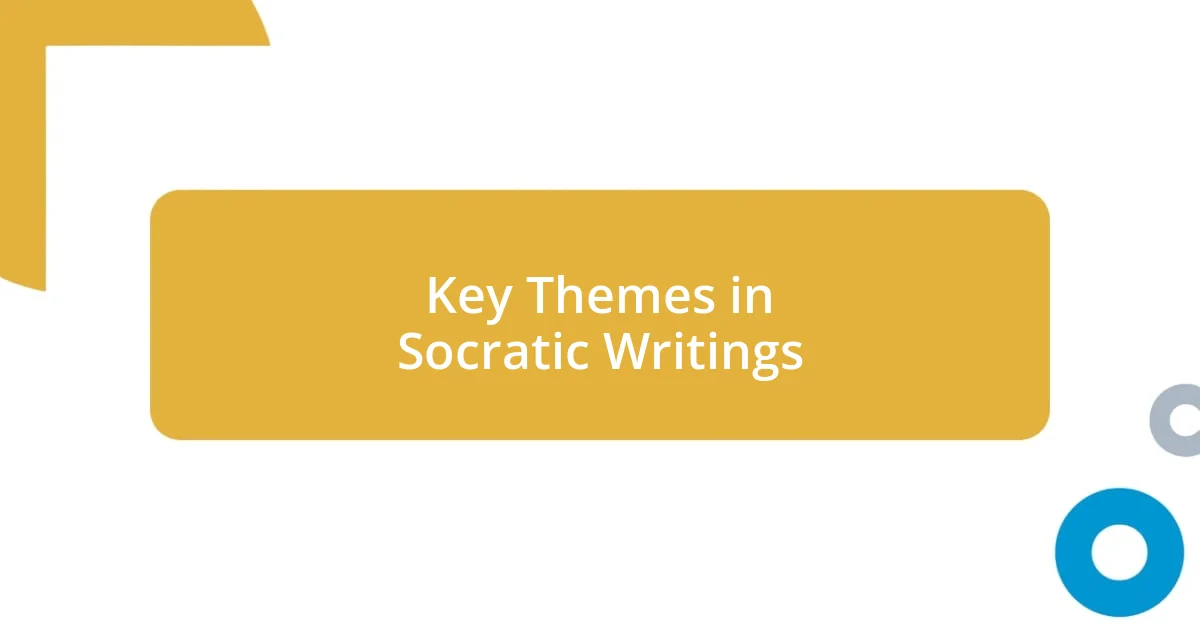
Key Themes in Socratic Writings
Socratic writings often circle around a few profound themes that resonate deeply with me. One theme is the pursuit of knowledge, which I find captivating because it necessitates engaging with our ignorance. I recall a moment during a philosophy class where I boldly claimed to understand a complex concept, only to be met with Socratic questioning that revealed how much I still had to learn. It was humbling, yet incredibly liberating.
Here are some key themes that stand out in the writings of Socrates:
- Ethics and Morality: Socrates emphasized living a virtuous life aligned with moral truths.
- Knowledge and Ignorance: His teachings often highlighted the importance of recognizing one’s own ignorance as the first step toward wisdom.
- Dialectical Method: The method of questioning leads individuals to discover answers for themselves, encouraging active participation in learning.
- Self-Examination: Socrates famously stated that the unexamined life isn’t worth living, promoting continuous self-reflection.
Each theme seems to weave into my own experiences, pushing me to question not just concepts, but the very nature of my beliefs. Reflecting on these themes, I can’t help but appreciate how they’ve structured my own thinking.
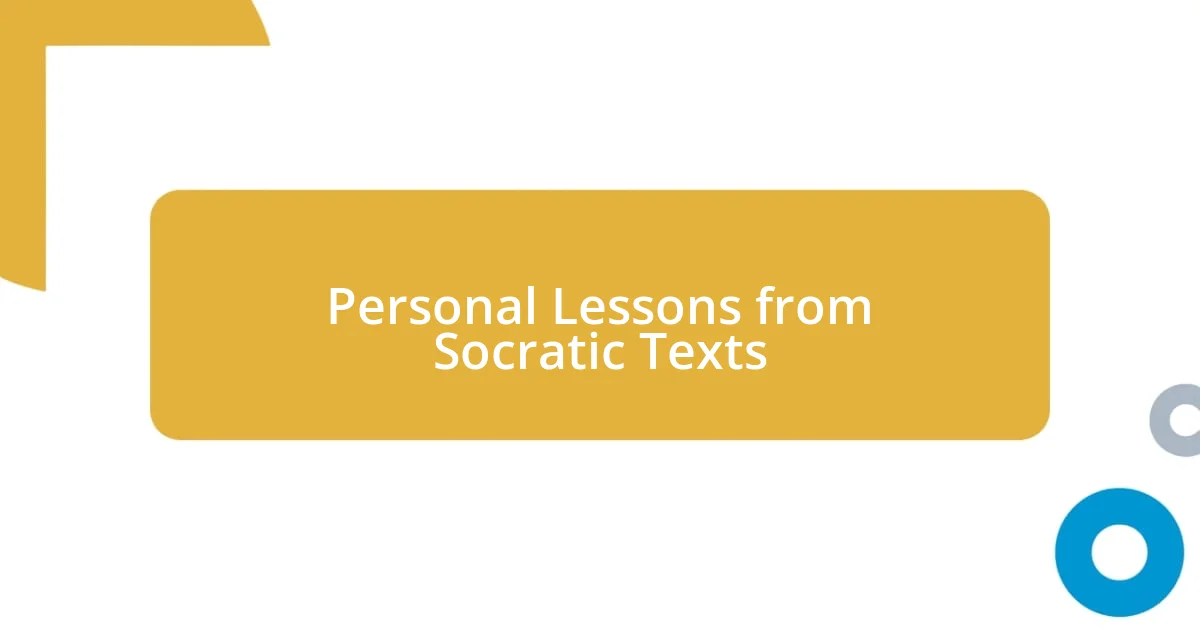
Personal Lessons from Socratic Texts
Socratic texts teach us the vital importance of humility in the face of knowledge. I distinctly remember a time when I was overly confident in my understanding of ethics. I was leading a group discussion when a peer asked a straightforward question that I hadn’t considered. It was a moment of vulnerability that forced me to acknowledge my limitations—not only in that conversation but in my broader understanding.
Through this journey of learning, I have discovered how essential it is to embrace uncertainty. A particular Socratic dialogue I read resonated deeply with me; it emphasized that the questions we pose can often be more enlightening than the answers we seek. I recall journaling about it afterward, realizing how many assumptions I held about myself and the world. It was transformative to see that my growth lay not in certainty, but in cultivating an inquisitive mindset.
Moreover, Socratic teachings have profoundly influenced my decision-making process. When faced with a tough choice, I often think back to the method of questioning Socrates employed. For instance, during a challenging career decision, I mapped out my reasoning steps, asking myself important questions like, “What do I truly value?” or “How does this align with my ethical beliefs?” This practice grounded me and instilled clarity amidst confusion, guiding my choices with intention and purpose.
| Personal Lesson | My Experience |
|---|---|
| Humility in Knowledge | Realizing I don’t know everything after being challenged in a discussion. |
| Embracing Uncertainty | Journaling about Socratic questions made me rethink my assumptions. |
| Intentional Decision-Making | Using Socratic questioning to navigate a tough career choice provided clarity. |
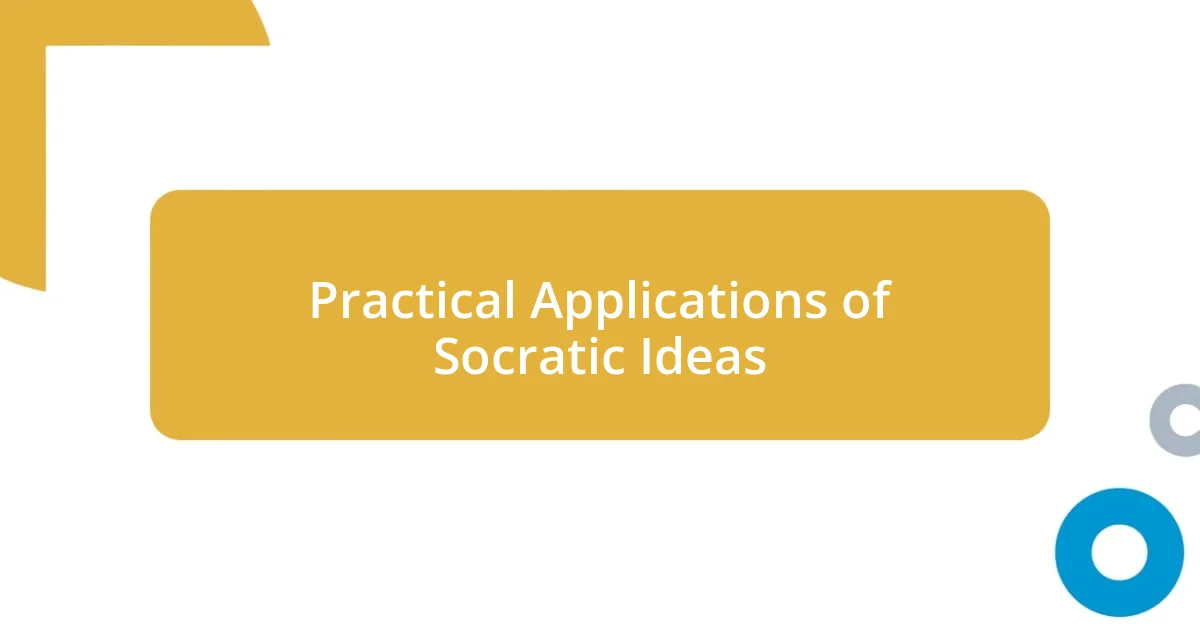
Practical Applications of Socratic Ideas
When I put Socratic ideas into practice, I find they revolutionize how I approach conversations. I recall a discussion I had with a close friend about our differing political views. Instead of jumping to defend my position, I embraced the Socratic method—asking open-ended questions that led us both to explore the underlying values driving our beliefs. This conversation not only deepened our understanding of each other but also illuminated areas where we could find common ground. Isn’t it fascinating how a few simple questions can transform a potentially heated debate into a meaningful dialogue?
In my career, the principles of self-examination have proven particularly beneficial. During a recent project, I took time to reflect on not just what I wanted to achieve, but why those goals mattered to me personally. Drawing from Socratic thought, I asked myself questions like, “What impact do I want my work to have?” and “Are my actions aligned with my core values?” This introspective practice not only clarified my objectives but also reignited my passion for my work. How often do we pause to consider our motivations?
Moreover, I can’t overlook the power of acknowledging ignorance in personal relationships. I remember a moment when I offered advice to a friend who was going through a tough time. Instead of assuming I had all the answers, I asked her what she felt would help—using that Socratic dialogue to elicit her own insights. That experience taught me that sometimes, the best support we can give is not through providing solutions, but by encouraging others to think critically about their situation. Have you ever considered how your questions might empower those around you?
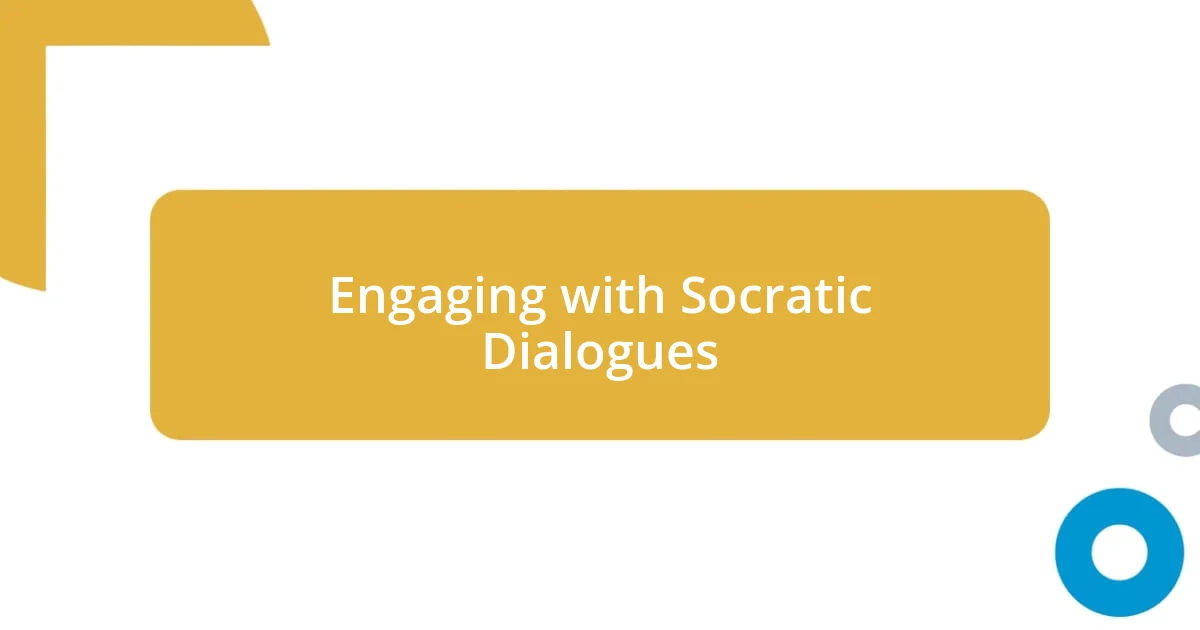
Engaging with Socratic Dialogues
Engaging with Socratic dialogues can feel like stepping into a conversation where inquiry takes center stage. I remember diving deep into “Plato’s Republic” and feeling the weight of Socrates’ method as he relentlessly questioned his interlocutors. It made me realize how rich and layered discussions can become when we allow curiosity to guide us. Can you imagine how different our conversations would be if we embraced this approach more often?
The process of engaging with these dialogues has often felt like a dance of ideas for me. One dialogue struck me particularly hard; the way Socrates dismantled arguments with targeted questions inspired me to rethink how I articulate my own beliefs. I recall a time during a family debate over dinner when I paused instead of jumping into defense mode. Instead, I asked my relatives why they held certain viewpoints, leading to a more constructive exchange. Wasn’t it refreshing to move beyond mere opinions and tap into the reasons behind them?
As I continue to explore these dialogues, I’m struck by their power to reveal truths about ourselves and society. At a recent community meeting, I found myself echoing Socratic principles as I facilitated discussions about local issues. By posing questions like, “What does justice mean for our community?” I watched people lean in, thoughtful and engaged. This reflection not only sharpened my understanding but reinforced my belief in the value of questioning. How often do we invite such depth in our everyday interactions?












